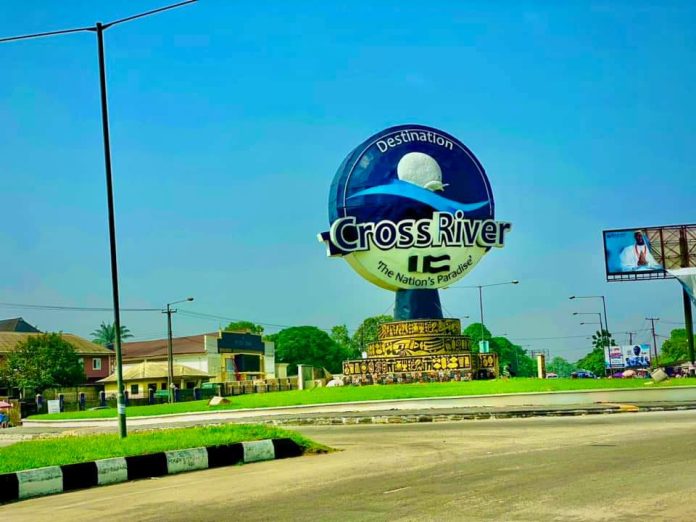Introduction
The Centre for Healthworks, Development and Research Initiative (CHEDRES) is dedicated to promoting women’s health and rights, good governance, environmental improvement, water sanitation and hygiene, peace-building, and community development in Nigeria. In light of the International Day of Zero Tolerance Against Female Genital Mutilation (FGM) 2024, CHEDRES emphasizes the urgent need to eradicate this harmful traditional practice. Despite laws and legislation against FGM, certain communities in Cross River State continue to practice it. This article highlights the collaborative efforts between CHEDRES and the SHARE Institute USA to address this issue, the impact they have made in one community, and the challenges that lie ahead.
Support and Education in Ibini Community
In 2005, CHEDRES partnered with the SHARE Institute USA to initiate the “Women, Gender, HIV/AIDS, and FGM project 2005” in the Ibini Community of Biase LGA. The program aimed to raise awareness about FGM, promote women’s health, gender equality, and HIV/AIDS prevention. Crucial support and education were provided to 100 elderly women, women of reproductive age, and adolescent girls in the community. Through this initiative, CHEDRES empowered them by educating them about the physical and psychological consequences of FGM, fostering discussions on gender equality, and highlighting the importance of women’s health and HIV/AIDS prevention.
Addressing Women’s Health, Gender Equality, HIV/AIDS, and FGM
The project’s agenda also aimed to address interconnected issues concerning women’s health, gender equality, HIV/AIDS, and FGM through workshops, seminars, and awareness campaigns. By engaging community members and key stakeholders, CHEDRES encouraged open dialogue and challenged social norms surrounding FGM. To date, CHEDRES has continued to sensitize communities using educational resources such as childbirth picture books, the VAPP, and other materials.
The Ripple Effect
One notable case that exemplifies the impact of CHEDRES’ efforts is the story of an elderly woman who shared her perspective during the program. She emphasized that women will not cease practicing FGM unless men also stop the practice of male circumcision. This comment sheds light on the deeply ingrained societal expectations and traditional beliefs that perpetuate FGM. It underscores the need to involve men in the conversation and change the narrative surrounding circumcision practices.
Challenges and the Way Forward
Despite the progress made through the Women, Gender, HIV/AIDS, and FGM project in 2005, FGM continues to prevail in certain communities in Cross River State. This highlights the existence of deeply rooted cultural practices and beliefs that necessitate a more comprehensive and sustained effort to eradicate FGM.
To overcome these challenges, it is crucial to maintain engagement with community leaders, religious institutions, and opinion shapers. Championing community-led initiatives and fostering dialogue to challenge cultural norms will facilitate mindset changes over time. Additionally, educational and awareness programs targeting both women and men are essential in breaking the intergenerational cycle of FGM and promoting the rights, health, and well-being of women and girls in Cross River State.
WHY FIGHTING FGM MUST BE HOLISTIC IN CROSS RIVER STATE
The fight against Female Genital Mutilation (FGM) in Cross River State, Nigeria, must adopt a holistic approach for several reasons:
1. Human rights: FGM violates the basic human rights of girls and women, infringing upon their bodily integrity, health, and well-being. A holistic approach ensures the recognition and promotion of human rights, protecting individuals from harm.
2. Health consequences: FGM leads to immediate and long-term physical and psychological health consequences. It causes severe pain, infections, hemorrhages, complications during childbirth, and even death. A holistic approach includes raising awareness about these risks, providing healthcare services, and offering support to survivors.
3. Social norms and cultural change: FGM is deeply rooted in cultural beliefs and social norms. Effectively combating this practice requires community engagement, dialogue, and education. It is vital to challenge harmful traditional beliefs, promote gender equality, and empower communities to reject FGM and protect the rights of girls and women.
4. Legal and policy framework: A holistic approach necessitates a strong legal and policy framework to prohibit FGM and ensure enforcement. Governments, in collaboration with international organizations and civil society, must implement and monitor relevant laws and policies, holding those practicing FGM accountable.
5. Collaboration and international cooperation: FGM is a global issue requiring international cooperation. The International Day of Zero Tolerance for Female Genital Mutilation provides an opportunity to raise awareness, share experiences, strategies, and support efforts to end this harmful practice. A holistic approach recognizes the need for collaboration among governments, organizations, and individuals to eradicate FGM worldwide.
Adopting a holistic approach to fighting FGM in Cross River State, Nigeria, on the International Day of Zero Tolerance for Female Genital Mutilation 2024, ensures addressing the multiple dimensions associated with this harmful practice. It guarantees the protection, well-being, health, and rights of girls and women.
Conclusion
On the International Day of Zero Tolerance Against Female Genital Mutilation, it is crucial to unite and intensify efforts to eradicate this harmful practice in Cross River State. The collaborative efforts of CHEDRES through the Women, Gender, HIV/AIDS, and FGM project demonstrate the positive impact that education and support can have on communities. It is essential to continue working towards empowering women and girls, challenging social norms, and engaging men to eradicate FGM once and for all. This will ensure a future free from this harmful practice.
Felix Ukam
Executive Director
Centre for Healthworks, Development and Research Initiative (CHEDRES)
Address: #3 Otop Abasi Street, Calabar, Cross River State, Nigeria
Email: chedresnigeria@yahoo.com










